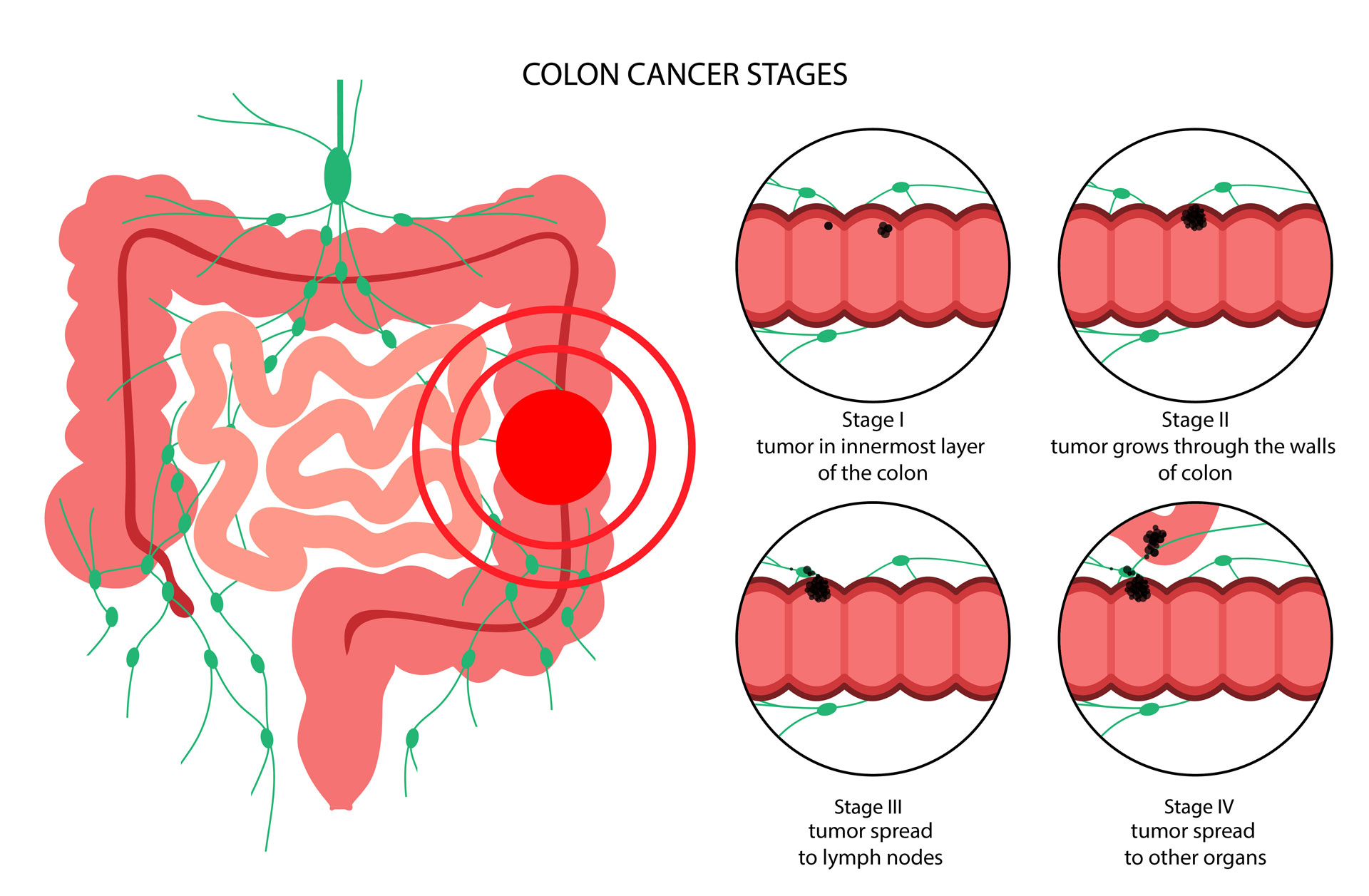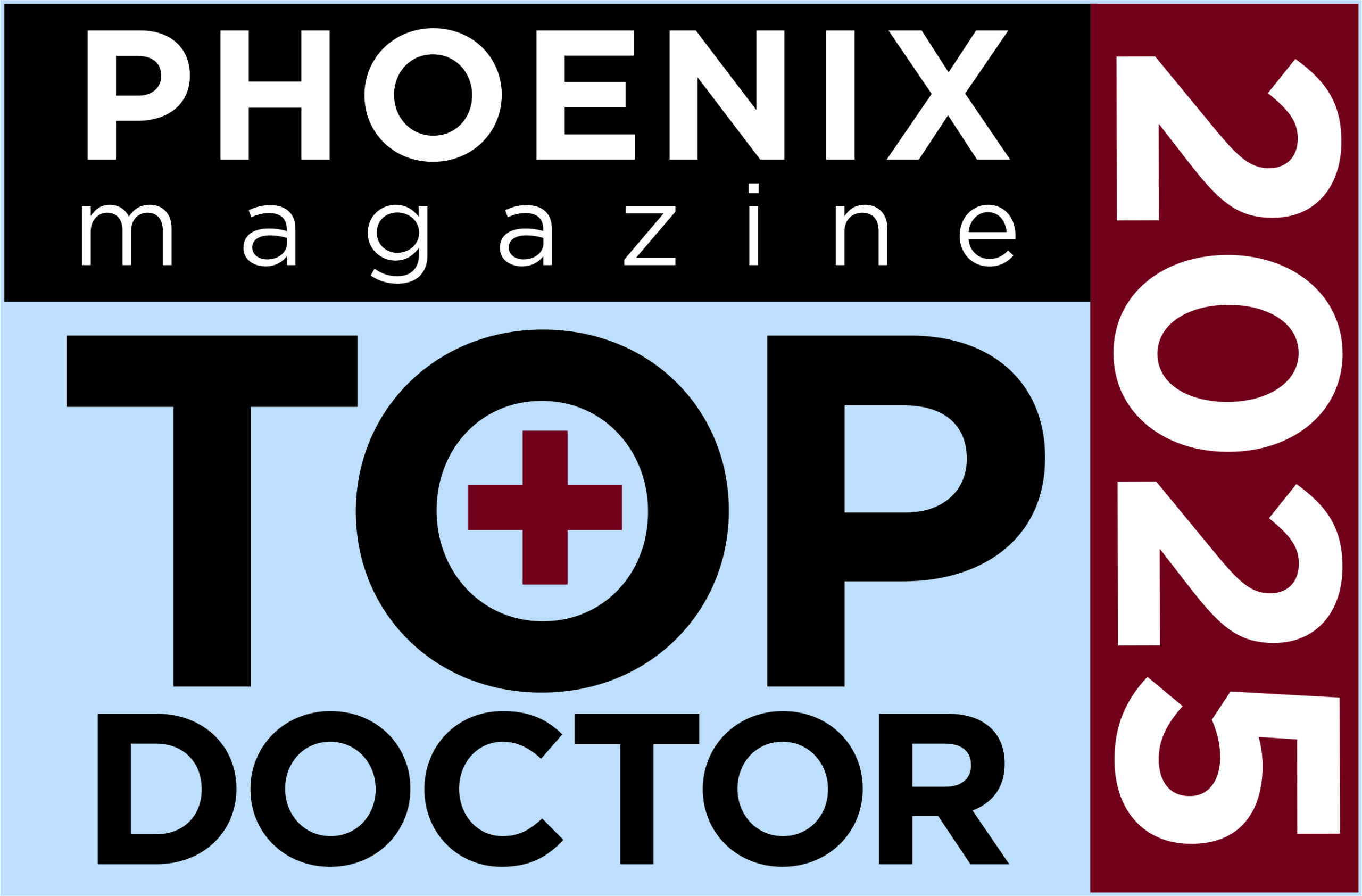Conditions And Treatments
Home / Areas Of Specialty / Colon Cancer
Colon Cancer
Colon cancer is a third common cancer in the United States and worldwide. Its incidence is rising worldwide in the younger population. You can prevent colon cancer by doing a colonoscopy and other screening modalities. There are also other modalities for the screening which included different type of stool tests. Colon is part of the human intestine tract also known as large bowel, which contributes towards formation and storage of stool. However, this way it is also exposed to all those toxins in the stool. Another key point is that some types of polyps can grow and form cancer. These types of cancers known as adenocarcinomas develop in the lining of the colon. As the cancer grow it has a tendency to spread to surrounding areas including lymph nodes and also can spread to the distant organs. Colon cancer has signs and symptoms which we will discuss further below.
Reasons / Risk Factors For Colorectal Cancer
There are many different reasons and risk factors for the colon and rectal cancer. Most common age of diagnosis of colo-rectal cancer is after 50 years. But recently the incidence has been rising in the younger population for various reasons. Changes in the genes of the human body can increase the risk of colorectal cancer. The common gene alterations and mutations include HNPCC (Hereditary non polyposis colon cancer) or Lynch syndrome, FAP (familial adenomatous polyposis). But there are other thousands of other genes alternation can lead to colorectal cancer formation as well. Many of those genes are still unknown.
However, the other risk factors include family history of colon cancer or rectal cancer and other related cancers like uterine, Kidney and Bladder, thyroid cancer among few. Your diet can also increase the risk with certain type of foods like high in red meat content, smoking and less fiber intake.

Diagnosis / Signs And Symptoms
Colonoscopy is a primary and main modality for the diagnosis of the colon cancer. Your physician can diagnose It during a routine colonoscopy or if you are undergoing colonoscopy procedure for any specific reason. Colon cancer symptoms include bleeding, weakness, change in bowel habits like constipation or diarrhea or change in the caliber of the stool, a feeling of incomplete emptying, abdominal pain and cramps. Other late symptoms are feeling of blockage and bloating, loss of weight or appetite are sometimes nausea and vomiting. If you notice any of these symptoms of colon cancer, then you should seek a consultation with a colorectal surgeon.
In general, signs of colon cancer are the manifestation of the disease which your physician perceives. Some of the signs of colon cancer are iron deficiency anemia, narrow caliber or pencil thin stools, unintentional weight loss and loss of appetite. Your physician will ask you questions regarding signs of colon cancer.
Moreover, your colorectal surgeon will order other diagnostic tests if you have a cancer diagnosis. Those include the blood tests CEA, CT scans, abdominal or chest x-rays. There are 4 stages of colon cancer.
Another key point is that you should not ignore colon cancer symptoms.
Treatment Of Colon Cancer
The main treatment modality for the colon cancer is surgery unless it is a stage four disease. It usually requires the removal of affected portion of the colon. There are different ways to perform the surgeries including minimally invasive way which usually include use of the da Vinci Robot, laparoscopy method. The other modality is doing it open surgery by making a larger incision on your abdominal wall. It is usually preferable to perform the surgery in a minimally invasive method so that patients recover fast and are released from the hospital with the minimum length of stay. Surgery usually may require a preoperative evaluation from your primary care doctor.
Your colorectal surgeon will discuss with you all these details in regard to the preparation for the surgery and details of the surgery and post-surgery recovery and expectations. In some cases, where disease is advanced patients may need a colostomy/ bag. Please ask questions to your colorectal surgeon in regard to the details before the surgery so you can prepare yourself. After the surgery sometimes you may require further treatment in the form of chemotherapy or radiation based on your final pathology.
What is a colon and Rectal Surgeon? Is Dr Singh a Board-certified Colorectal surgeon? and where does he perform his procedures.
Colon and rectal surgeons are experts in the surgical and non-surgical treatment of diseases of the colon, rectum, and anus. They have completed advanced surgical training in the treatment of these diseases, as well as full general surgical training. They are well versed in the treatment of both benign and malignant diseases of the colon, rectum, and anus and are able to perform routine screening examinations and surgically treat conditions as and if needed. Dr Singh is a double board certified in Colon and Rectal Surgery and General surgery. His practice is located in Phoenix, Glendale and Scottsdale, AZ.
For more detailed information on Colon and Rectal cancer please click on the following link :
Colon and Rectal Cancer Follow-Up Care Expanded Version | ASCRS (fascrs.org)
Rectal Bleeding – Dr Neeraj Singh MD FACS FASCRS (colorectaldoc.com)

